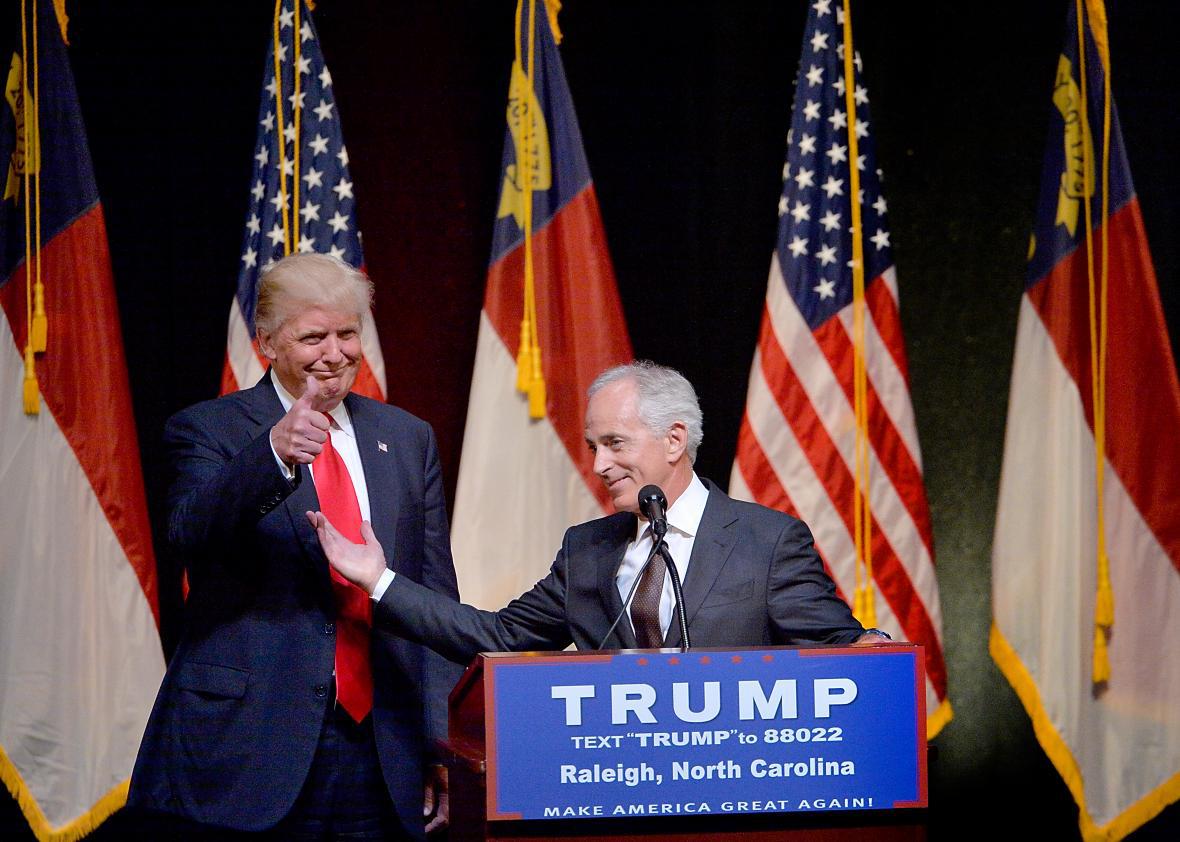It’s almost as if congressional Republicans think there might be something to all this Trump-Russia stuff.
In an almost unheard-of-these-days moment of bipartisanship and over White House objections, the Senate passed a bill 97–2 last month that would limit President Trump’s ability to lift sanctions on Russia. The House is likely to overwhelmingly pass its own version of the bill this week. The New York Times reports Monday that, after fighting it, the White House has signaled it will now accept the bill, which also places new sanctions on Iran and North Korea, two major administration priorities. It could hardly do otherwise given the bill’s likely veto-proof support and the current political environment.
The official line is that the White House has been satisfied by a few changes in the House version, including the addition of North Korea and some tweaks requested by U.S. energy companies. But that’s not exactly convincing, since the new version leaves in place the provision that the White House objected to in the first place, which Trump’s legislative affairs director Marc Short called an “unusual precedent of delegating foreign policy to 535 members of Congress.”
The bill will sign into law the sanctions that Barack Obama imposed by executive order over Russia’s annexation of Crimea, support for armed separatists in Eastern Ukraine, and meddling in the 2016 election. It will also impose a number of new sanctions related to Ukraine and human rights abuses. And while many sanctions laws give the president power to waive them in the name of the national interest, this law would require the president to certify that Russia has demonstrably changed its behavior in order to lift sanctions related to Ukraine and cyberattacks.
Secretary of State Rex Tillerson had pleaded with Congress to craft the bill to give the president “the flexibility to adjust sanctions to meet the needs of what is always an evolving diplomatic situation,” but so far, Congress has not done so.
Under normal circumstances, Tillerson would have a point. It’s far easier to get new sanctions passed in Congress than it is to lift them (see: Cuba). But with this president, in these circumstances, Congress isn’t taking any chances.
This is fairly remarkable: Two GOP-controlled houses of Congress have passed a bill over Trump’s objections that curtails his authority and does so in part by codifying Barack Obama’s executive orders into law. This is worth keeping in mind the next time a Republican senator dismisses the latest Russia revelation as a “nothing burger” or irrelevant, or insists that the real issue is leaks from the intelligence community. Republicans may not be willing to criticize the administration in public, but they don’t quite seem to trust it either.
Last week, Foreign Relations Committee Chairman Bob Corker insisted that the language curtailing the administration’s ability to lift sanctions “is going to stay in this bill.” (Corker also used the new sanctions as political cover, deflecting questions about Donald Trump Jr.’s emails earlier this month by bringing up progress on the sanctions bill, which he sponsored. “Talk to others about politics. Talk to me about policy,” Corker high-mindedly told reporters.)
Corker is thought of as a Tillerson ally and described him in the same interview as a “good friend” whose partnership he values, but the secretary of state’s lobbying clearly wasn’t enough. While he may not be anxious to discuss them, Corker’s concerns about the administration appear to be such that he’s willing to limit his good friend’s ability to cut deals with Moscow.
Despite their seemingly limitless capacity to defend Trump publicly, GOP members of Congress clearly have some private concerns. Perhaps they could share them.
